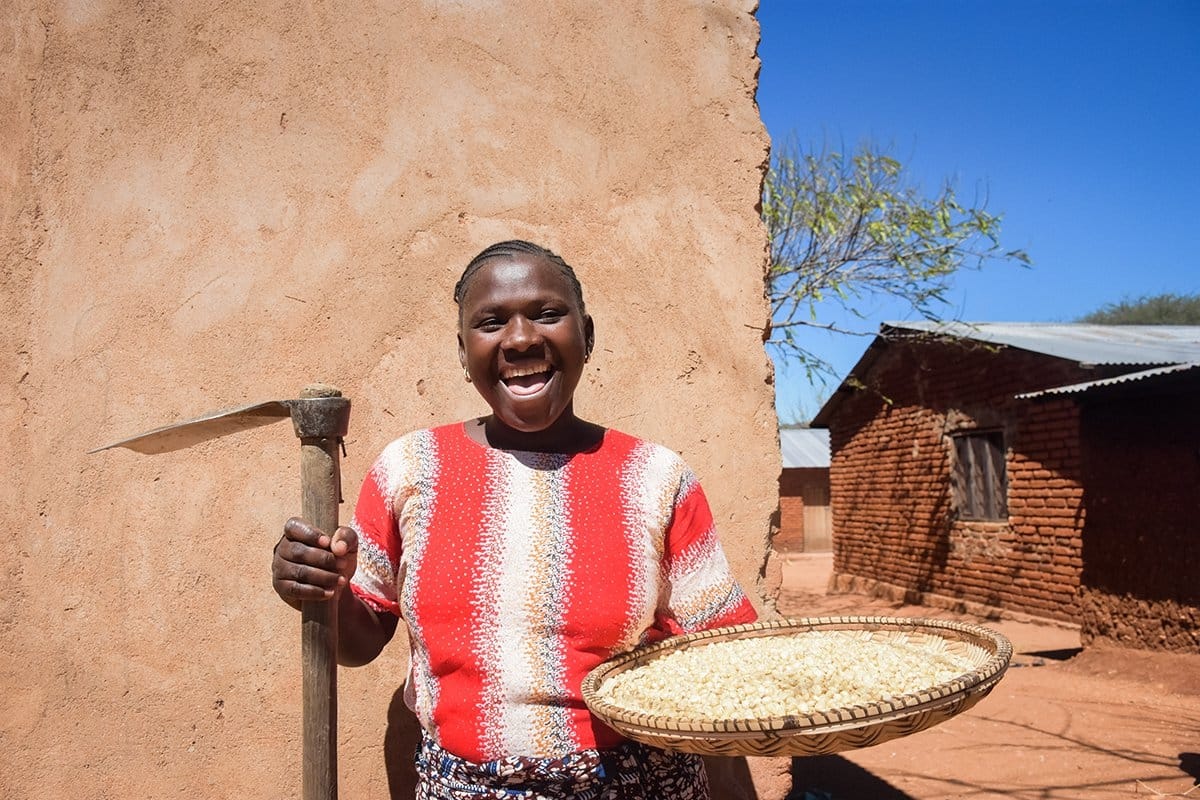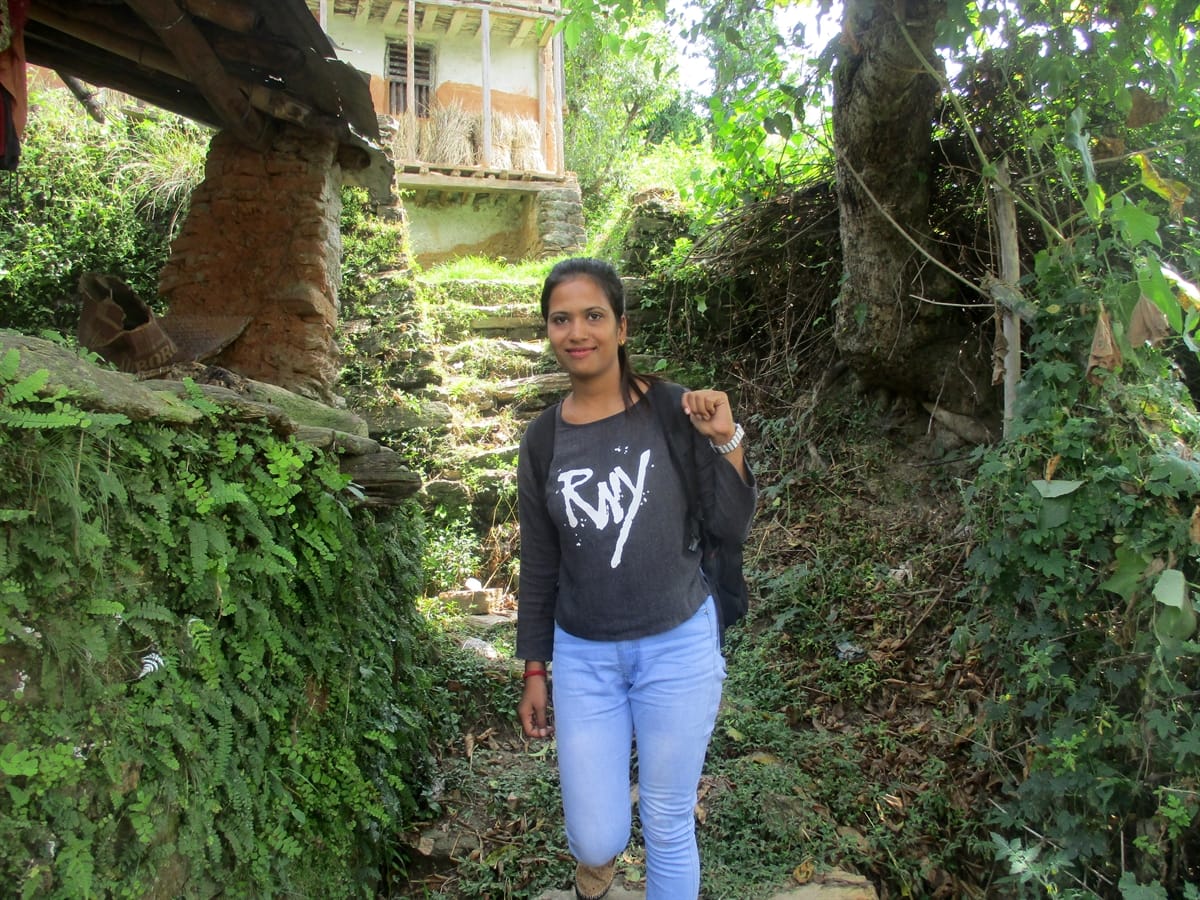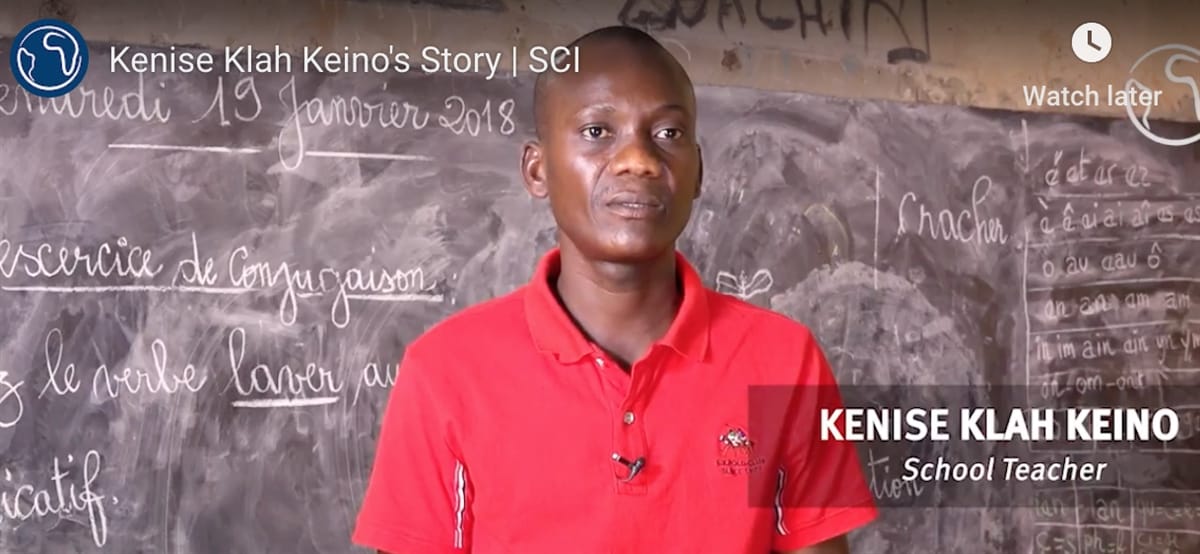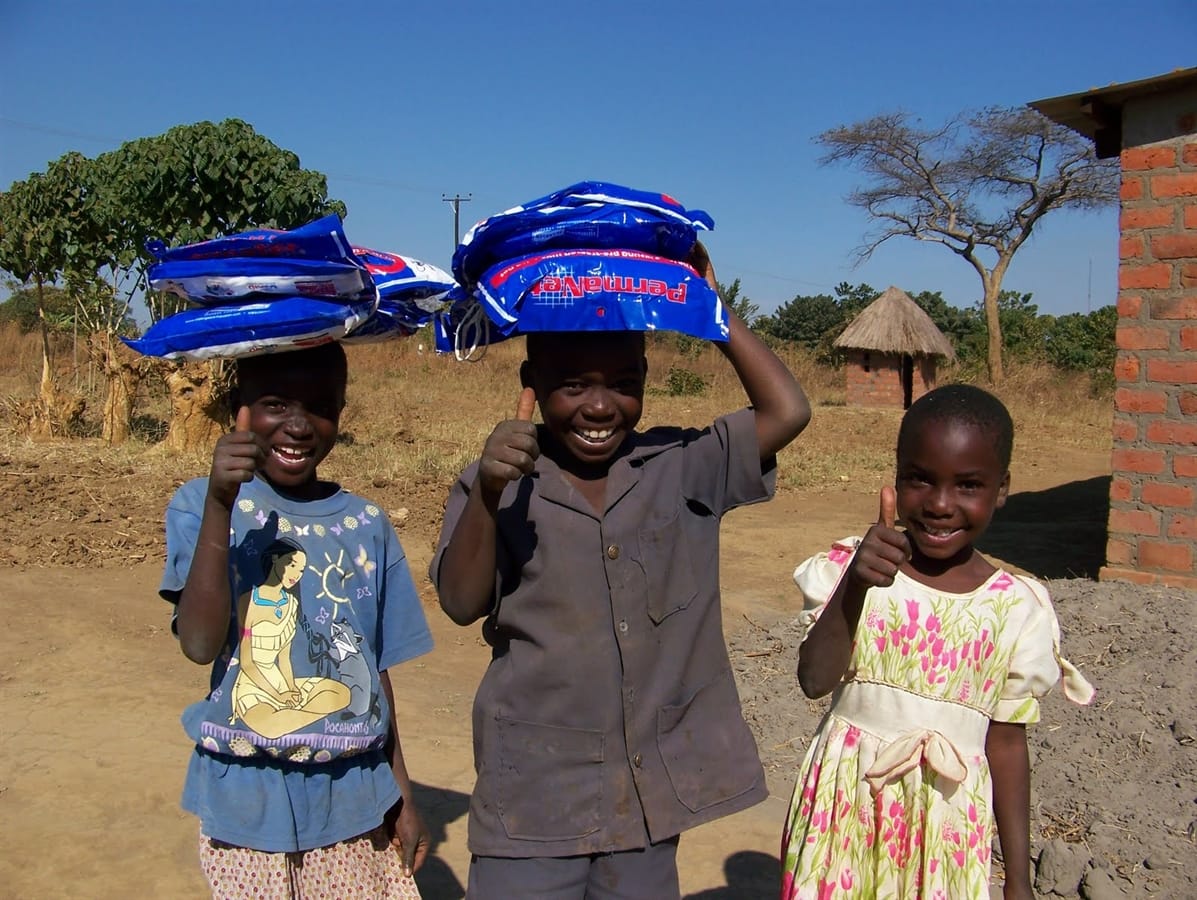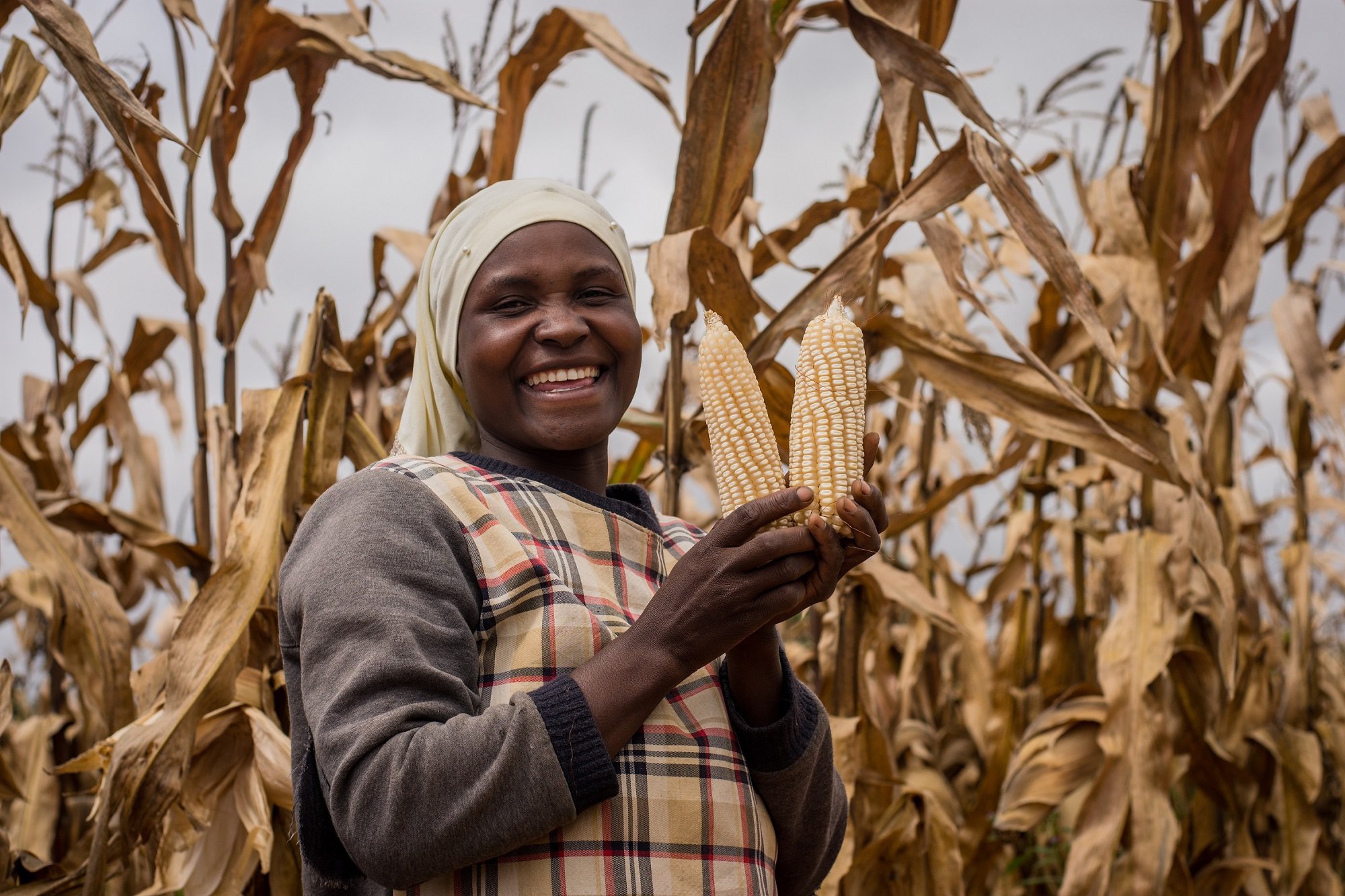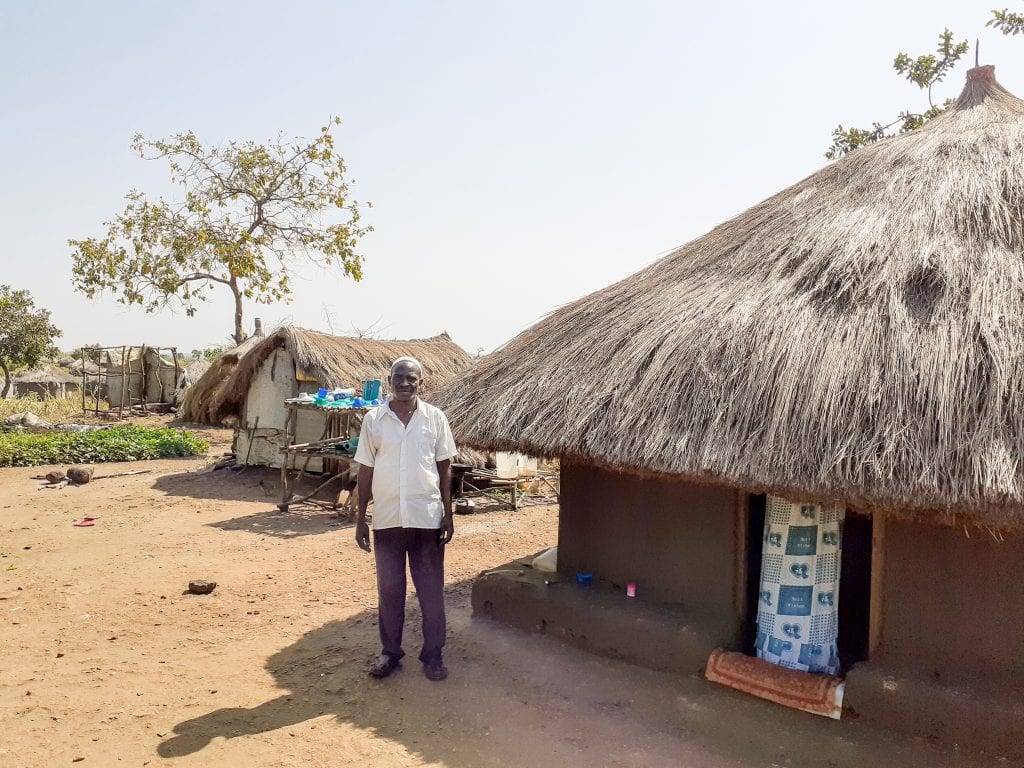Remember: May 28th is World Hunger Day
We believe farmers should be treated as clients, not beneficiaries. Here’s why.
At the 2018 African Green Revolution Forum (AGRF), Rwandan President Paul Kagame said, “We have everything we need to succeed. We must start treating farmers as clients. They need the latest skills and services to increase their productivity.” At One Acre Fund, we agree. Treating farmers as clients ultimately will build our rural economies and support our the region’s farmers in becoming sustainable entrepreneurs.
So what does it meant to treat farmers as clients, rather than beneficiaries?
It starts with offering farmers a choice of what to buy for their farms and homes. Instead of handouts, we offer a range of products for purchase–such as seeds, solar lights, or drying sheets–and the credit to pay them off over time. When we put the choice in farmers’ hands, their combined purchasing power can influence what products and tools are available in rural markets.

By providing farmers with choice, they are able to choose the smartest ways to invest in their farms and build lasting pathways to prosperity.
For Spelansia Mgidula, a farmer in Nyamahana Tanzania, having a choice about what type of maize seed she plants has allowed her to diversify and increase her household income. Spelansia, a caretaker of four, used to harvest four to five bags of maize off of one acre of land. She typically planted whatever seed she could find readily available and could afford at her local market.
While Spelansia knew about the benefits of hybrid seed, the natural cross between two high-performing varieties, she simply didn’t have the choice to purchase it until she bought four bags from a One Acre Fund field officer. That year, she harvested 14 bags of maize off the same plot of land, nearly triple previous years.
When farmers make their land more productive, they also generate new income to invest in businesses and assets. Spelansia reflects that the biggest change wasn’t in her ability to feed her family, although that was an added benefit. Because the seed type was more productive in her field, she harvested enough to sell some of her maize, giving her an income—something she rarely saw before.
“When I got the money, I saw an opportunity,” she said. “It was a way to increase my income. I know how to sew, and I can sew any design, but before I did not have a machine.” That year, Spelansia sold four bags of maize, bought a sewing machine, and began a seamstress business.
The next year’s surplus purchased a bed for her children. This year she plans to sell a portion of her harvest to finish building a home so her family can stop spending money on their current rental.
By providing farmers with choice—be it around type of seed, crop mix to plant, or which solar solution best meets their household needs—they are able to choose the smartest ways to invest in their farms and their livelihoods. And often, the ability to better invest can seed the start of a new income stream, like Spelansia’s seamstress shop. Treating farmers as clients is a necessary step in helping them to build lasting pathways to prosperity.
You can read more about One Acre Fund here and support their work here.
